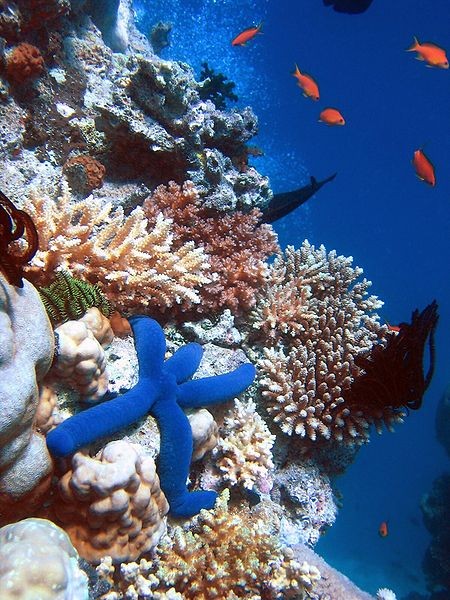Marine Survey Uncovers a Deep Sea Treasure Trove

WHAT price nature? When it comes to adding up the ecological benefits to Australia of its huge marine domain, the first serious stab at a value is $25 billion.
While marine industries such as fishing, oil and gas exploration and marine tourism have long been accounted for, ecosystems themselves have been ignored, a report released today says.
Building on UN Environment Program biodiversity assessments, the Sydney Centre for Policy Development has counted up the worth of nature hidden beneath the sea's surface.
The greatest single value lay in the ocean's use as a carbon sink. Using the Gillard government's proposed $23 per tonne carbon price, the centre estimated Australia's marine domain to be worth $15.8 billion. In the report, Stocking Up: Securing Our Marine Economy, the centre's research director, Laura Eadie, said small but relatively intensive carbon sinks such as coastal seagrass beds and coral reefs could be worth $79 per hectare. Open ocean, which makes up most of the 10.2 million square kilometre marine territory counted in the report, was worth much less as a sink at $9 per hectare.
The report also calculated dollar values of the oceans to the economy in recreational fisheries, providing ''nursery'' services to fish, and in disease control.
Ms Eadie said that as the first ecosystem service valuation study done for a whole sector of the environment, conservative estimates had been made and true values were likely to be much larger. She said the study shone a light on the marine economy as a whole, before rising pressures such as greater global food demand, and ecosystem disruption caused by climate change.
''This report shows the clear economic benefits of protecting our marine economy through sensible measures like establishing marine parks and setting targets to increase fish stocks.''
It comes at what the Environment Minister, Tony Burke, says is a once-in-a-generation chance to protect the marine environment.
Marine plans covering the waters around most of the coastline are to be settled before the end of next year. The report said stronger protections in these waters could set Australia up to benefit at a time when global fisheries were being depleted.
''If global fishing continues unabated … the value of commercial fish production from sustainably managed Australian fisheries could increase by 42 per cent, to $3.3 billion per year,'' it said.
The National Seafood Industry Alliance said Australia already had more waters in marine reserves than the international target of 10 per cent by 2020.
However, in a dire assessment of global fisheries, a group of international marine scientists concluded there is a persuasive argument for shutting down all deep sea fisheries. Rapid serial collapses of these fisheries resemble mining operations rather than sustainable fishing, said the US scientist Elliott Norse in the journal Marine Policy.
''Ending deep sea fisheries would be particularly appropriate for the high seas outside the [exclusive economic zones] of maritime countries, where fisheries from a few countries are harming the biodiversity that is a vital interest for all of humankind.''



